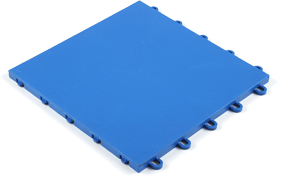Aug . 12, 2024 12:16 Back to list
Exploring Trends and Innovations in Urban Commercial Flooring Solutions for Modern Businesses
City Commercial Flooring Transforming Urban Spaces
In the bustling world of urban development, the flooring of commercial spaces plays a crucial role in establishing an environment that is not only functional but also aesthetically pleasing. City commercial flooring encompasses a variety of materials and designs that cater to the unique needs of businesses operating in metropolitan areas. From vibrant retail stores to sophisticated office spaces, the right flooring can significantly impact both employee productivity and customer experience.
One of the primary considerations when choosing flooring for commercial spaces in the city is durability. High foot traffic is a hallmark of urban environments, meaning that flooring must withstand daily wear and tear without compromising its appearance or functionality. Materials like vinyl, laminate, and polished concrete are popular choices for their resilience and ease of maintenance. For example, luxury vinyl tiles (LVT) can mimic the look of hardwood or stone while offering superior resistance to scratches and stains, making them ideal for retail and restaurant settings.
Aesthetics also play a vital role in the choice of flooring. In competitive urban markets, businesses strive to create distinctive atmospheres that resonate with their target audience. Flooring can complement a brand's identity and enhance the overall design of a space. For instance, a trendy coffee shop may opt for rustic hardwood floors to evoke warmth and comfort, while a modern tech startup might choose sleek, dark concrete for a minimalist and innovative look. The right flooring can set the tone and atmosphere, guiding customer perceptions and influencing their overall experience.
city commercial flooring

Moreover, sustainability has become an essential factor in the decision-making process for many businesses. As urban populations grow and the environmental impact of construction becomes more apparent, companies are increasingly opting for eco-friendly flooring solutions. Materials such as bamboo, cork, and recycled tiles not only offer sustainable benefits but also present unique designs that can make a commercial space stand out. By choosing environmentally responsible flooring, businesses can reflect their commitment to sustainability, appeal to eco-conscious consumers, and improve their overall corporate image.
Another significant trend in city commercial flooring is the incorporation of smart technology
. With the rise of the Internet of Things (IoT), some flooring systems now feature integrated sensors that can monitor foot traffic, temperature, and even cleanliness. This data can help business owners make informed decisions about maintenance and staffing, contributing to a more efficient and cost-effective operation. For example, smart flooring can alert managers when cleaning is needed, ensuring that spaces remain welcoming and hygienic for customers.Furthermore, the installation process should not be overlooked when considering city commercial flooring. Quick and efficient installation is essential for businesses that cannot afford long downtimes. Many modern flooring solutions, such as interlocking tiles or adhesive-free systems, allow for a faster installation process, minimizing disruption to daily operations. This is particularly beneficial for businesses in fast-paced urban environments where time is of the essence.
In conclusion, city commercial flooring is an integral aspect of urban development that influences not just the functionality of a space but also its overall appeal. Whether it's durability, aesthetics, sustainability, or technological integration, the options available today cater to the diverse needs of businesses across the cityscape. As urban areas continue to evolve and expand, the importance of thoughtful and innovative flooring solutions will only grow, paving the way for more dynamic and engaging commercial environments.
-
Sport Court Tiles with AI Innovation | Durable & Safe
NewsAug.01,2025
-
Vinyl Carpet Flooring | Durable & Waterproof Design
NewsJul.31,2025
-
Premium Basketball Board Stand with GPT-4-Turbo AI
NewsJul.31,2025
-
Premium Maple Flooring for Gyms & Homes | PVC & Vinyl Options
NewsJul.30,2025
-
Premium Outdoor Basketball Court Tiles for All Weather Use
NewsJul.30,2025
-
Durable Basketball Board Stand for Indoor & Outdoor Use
NewsJul.29,2025

